Gate
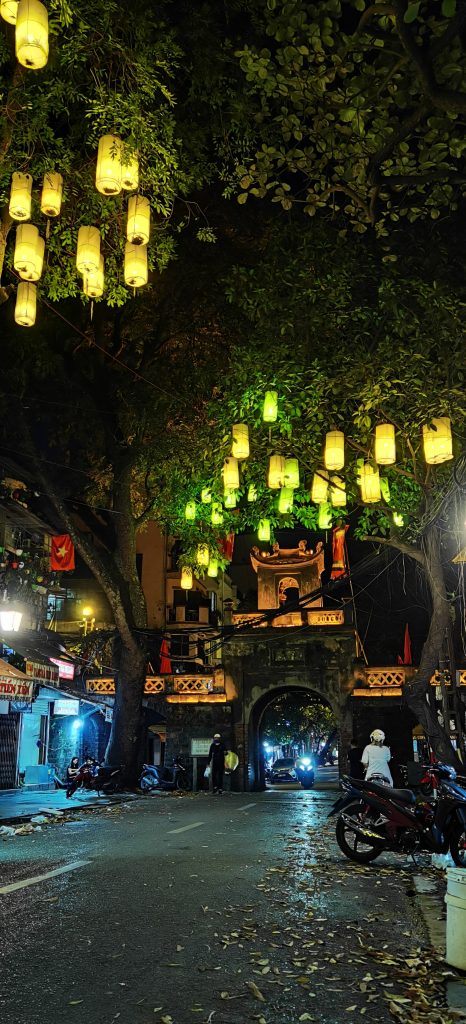
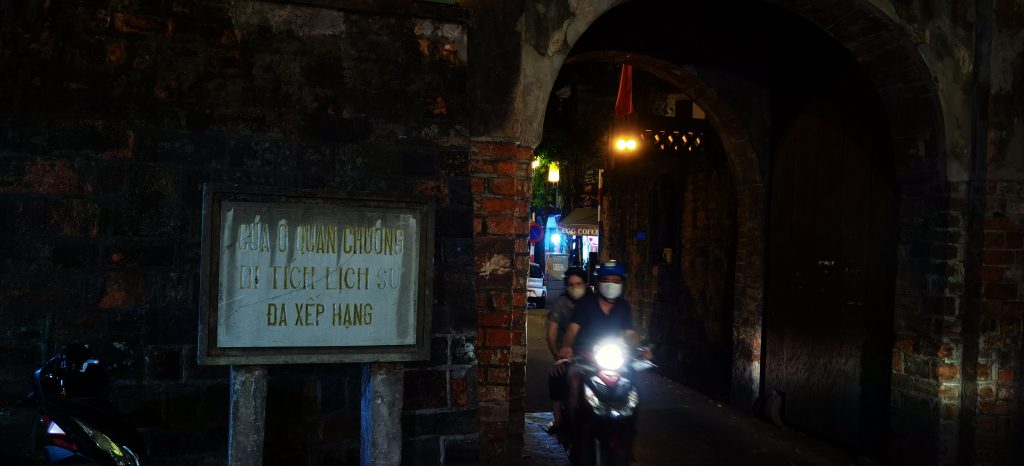
Hoàn Kiếm Lake
This is the most famous lake in the center of Hà Nội, whose name means “return the sword” (for more about the legend, follow this link). If you look at the map, there are plenty of lakes in this capital. That one however is famous, next to the center’s tiny streets. I feel like in a big village in some Hà Nội neighborhoods with their small streets and 2-story houses. This is the charm of the historical center. That lake was home to a sizeable turtle until a few years ago.
A lot of people are taking a walk around the lake anytime. Weather permitting you can see couples with a photographer for wedding pictures. In Vietnam it’s common to have wedding pictures taken on a different day. That way spouses may only focus on looking good.
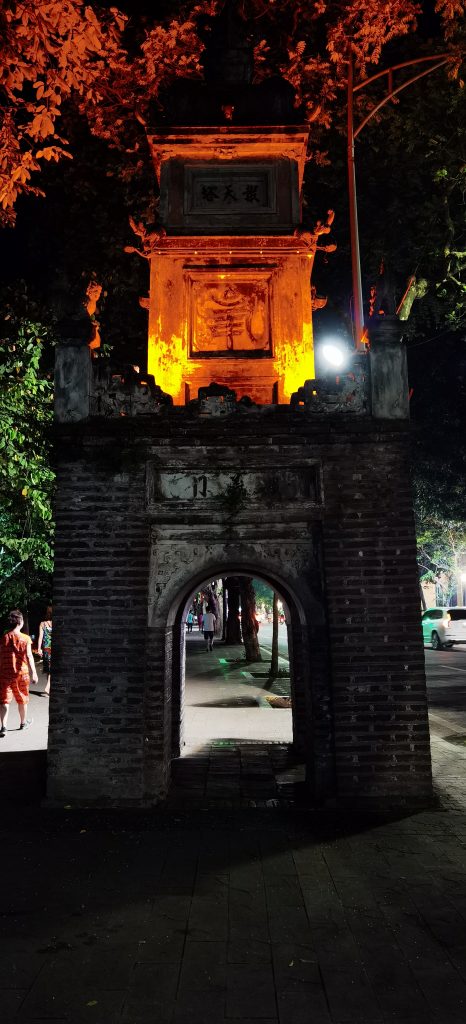
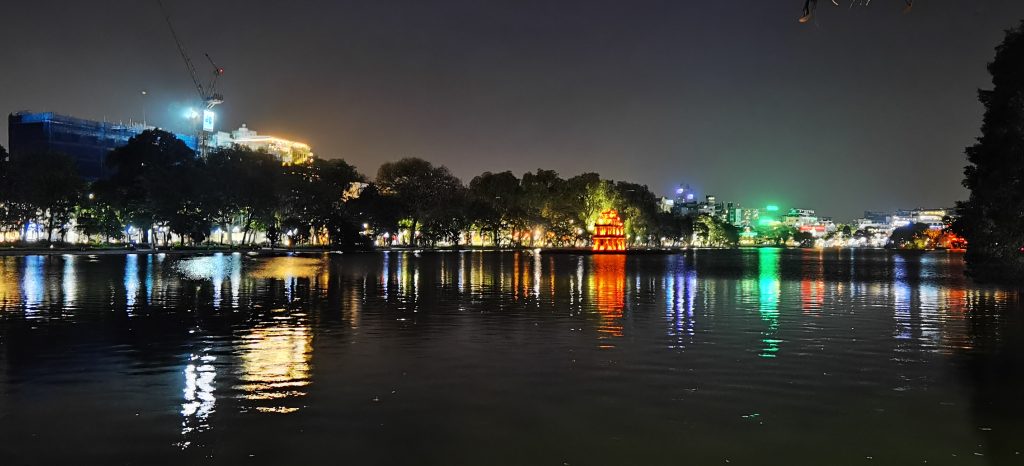
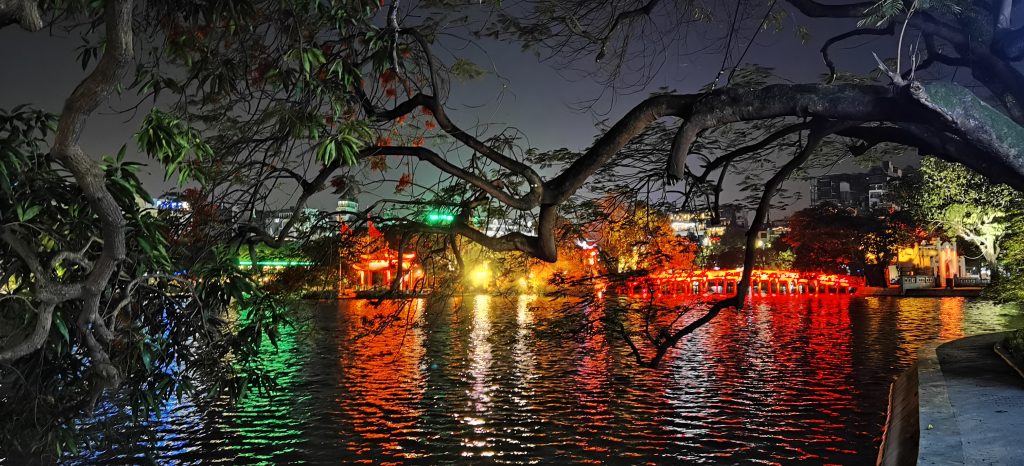
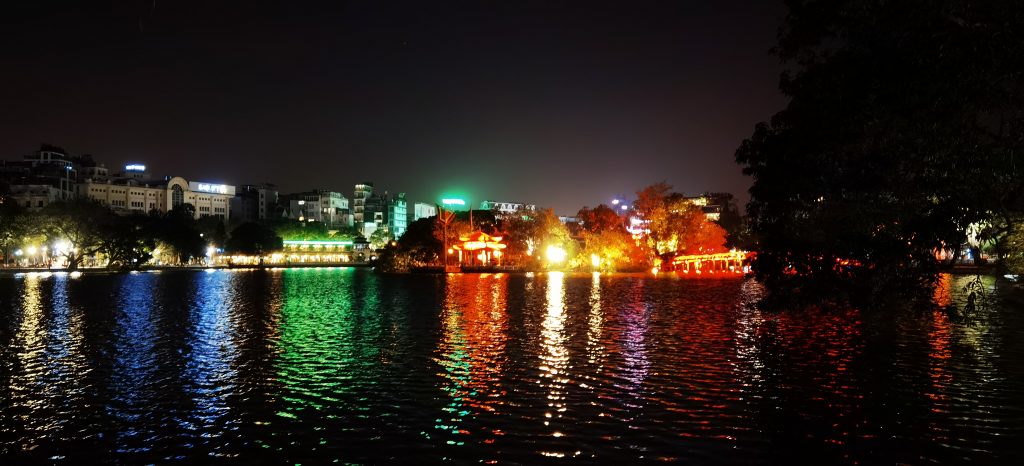

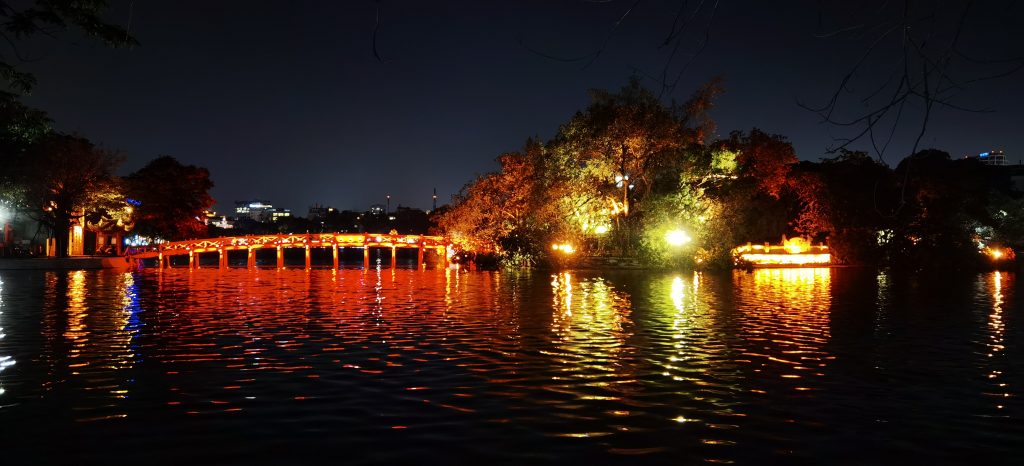
A lot of Chinese characters can be found on old buildings and temples. If you want some history about the Vietnamese alphabet, here it is. Coming from Switzerland, I would say the common points with German are both:
- if you can read it, you can pronounce it
- if you can hear it, you can write it
This is not so often the case in French with lots of irregularities in pronunciation and writing.
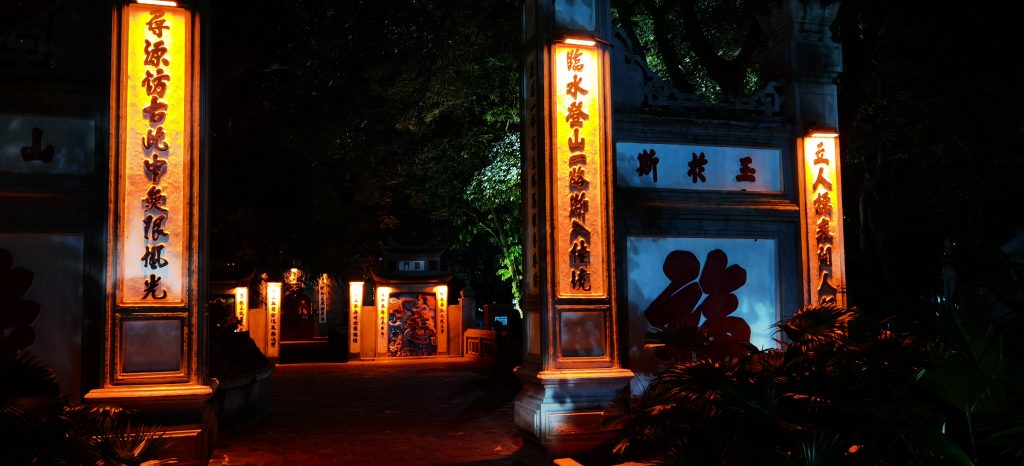
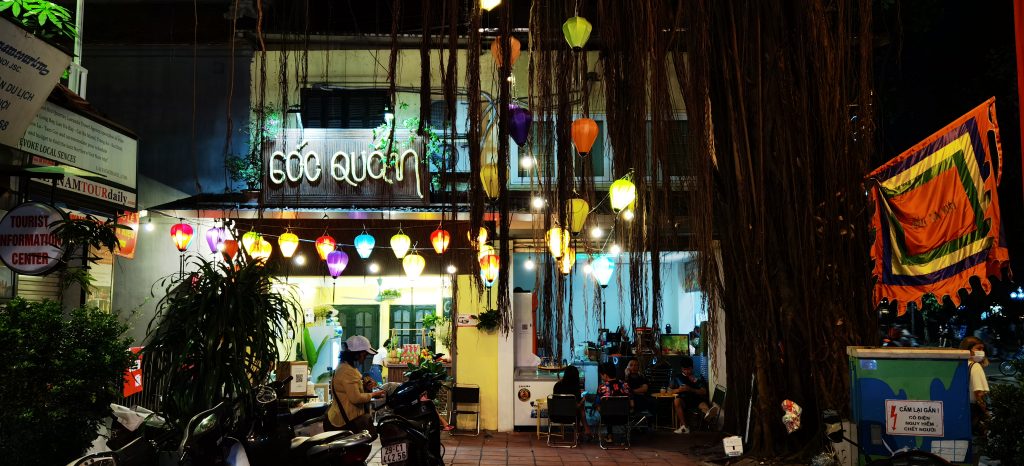
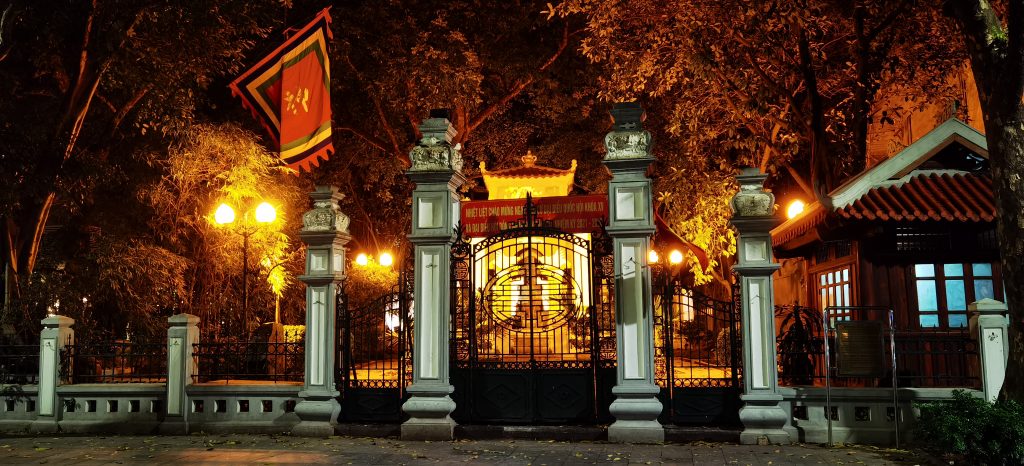
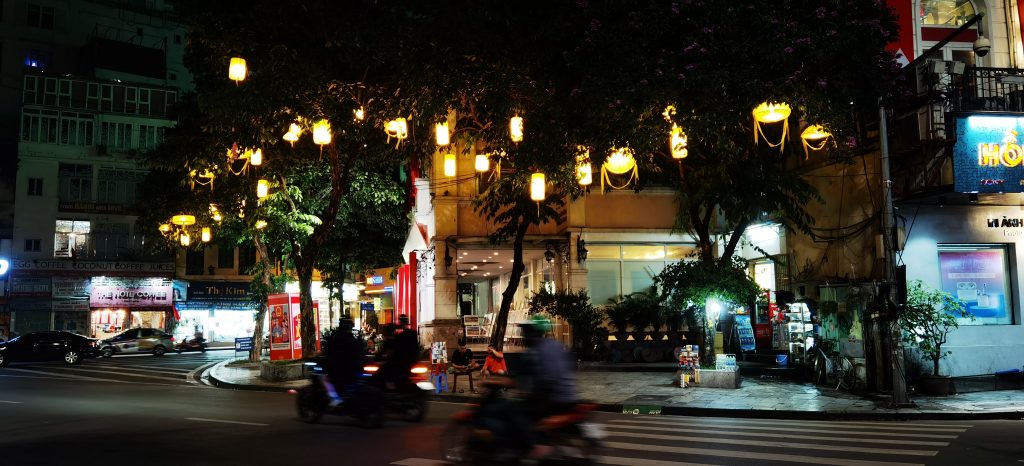
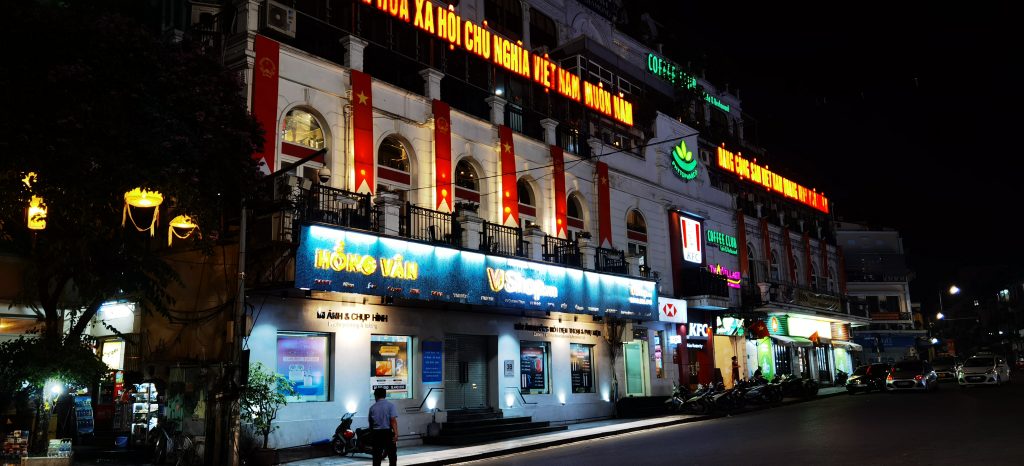
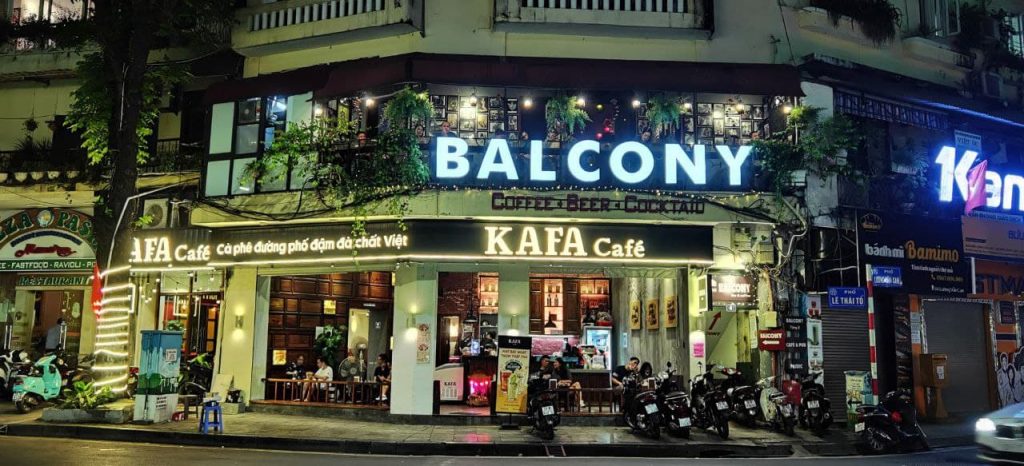
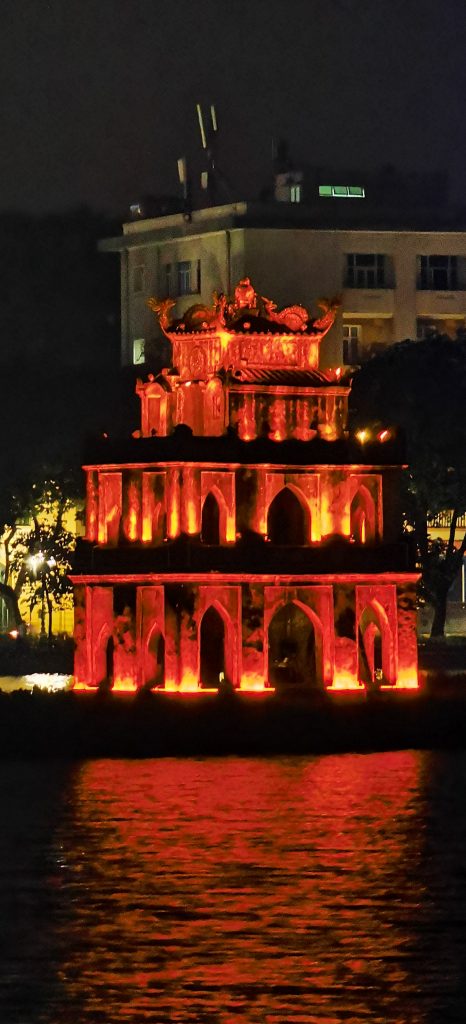
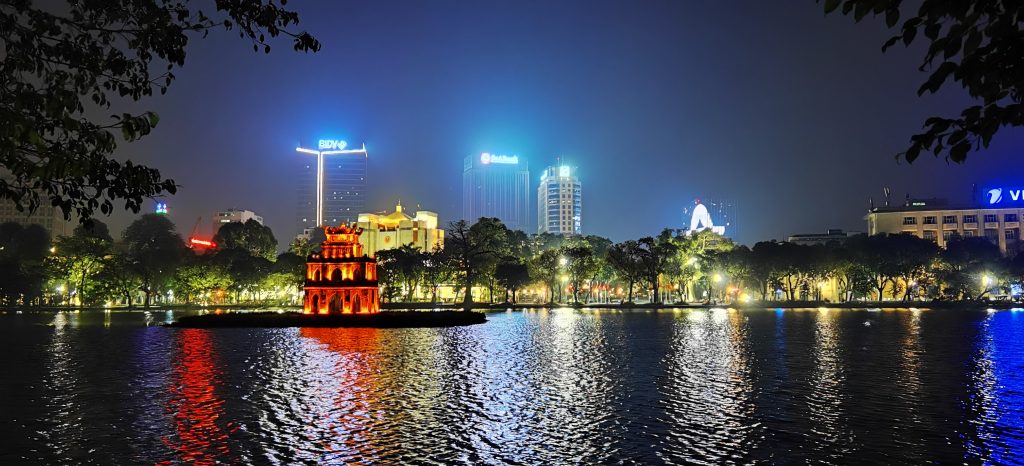
All photos shot with my Huawei P40Pro.
Merci pour cette balade nocturne grandiose, les légendes, les coutumes
En regardant les affiches de ton précédent post sur les évènements culturels de l’ambassade, je me disais, c’est bizarre, tout est écrit dans une sorte de pinyin (écriture phonétique en caractères alphabétiques), où sont leurs idéogrammes ?
Ce post-ci et Wikipedia ont corrigé mon ignorance.
Langues austroasiatiques uniquement parlées, écriture fondée sur les apports des colonisations successives (Chinois, Européens), la survie de l’identité est étonnante.
C’est comme si je savais parler français mais pas l’écrire, et qu’on vienne m’apprendre que “本就尔” se prononce “běn jiù ěr”, et que je décide d’utiliser ces idéogrammes pour le mot “bonjour”. Et que j’assure la survie de ma langue, ma poésie, mon histoire, ma culture, sur l’écriture via cette transcription.
Remarquable.
oui ils sont étonnants de résilience. Dans l’article en français que j’ai indiqué, certains se demandaient si l’avenir n’aurait pas été de directement parler français, ce qui avec recul paraît étrange comme proposition. Et comme tu dis ils se sont adaptés en conservant leur langue, leurs coutumes, leur identité. Depuis mon point de vue de français, je ne suis pas habitué à une telle gymnastique.